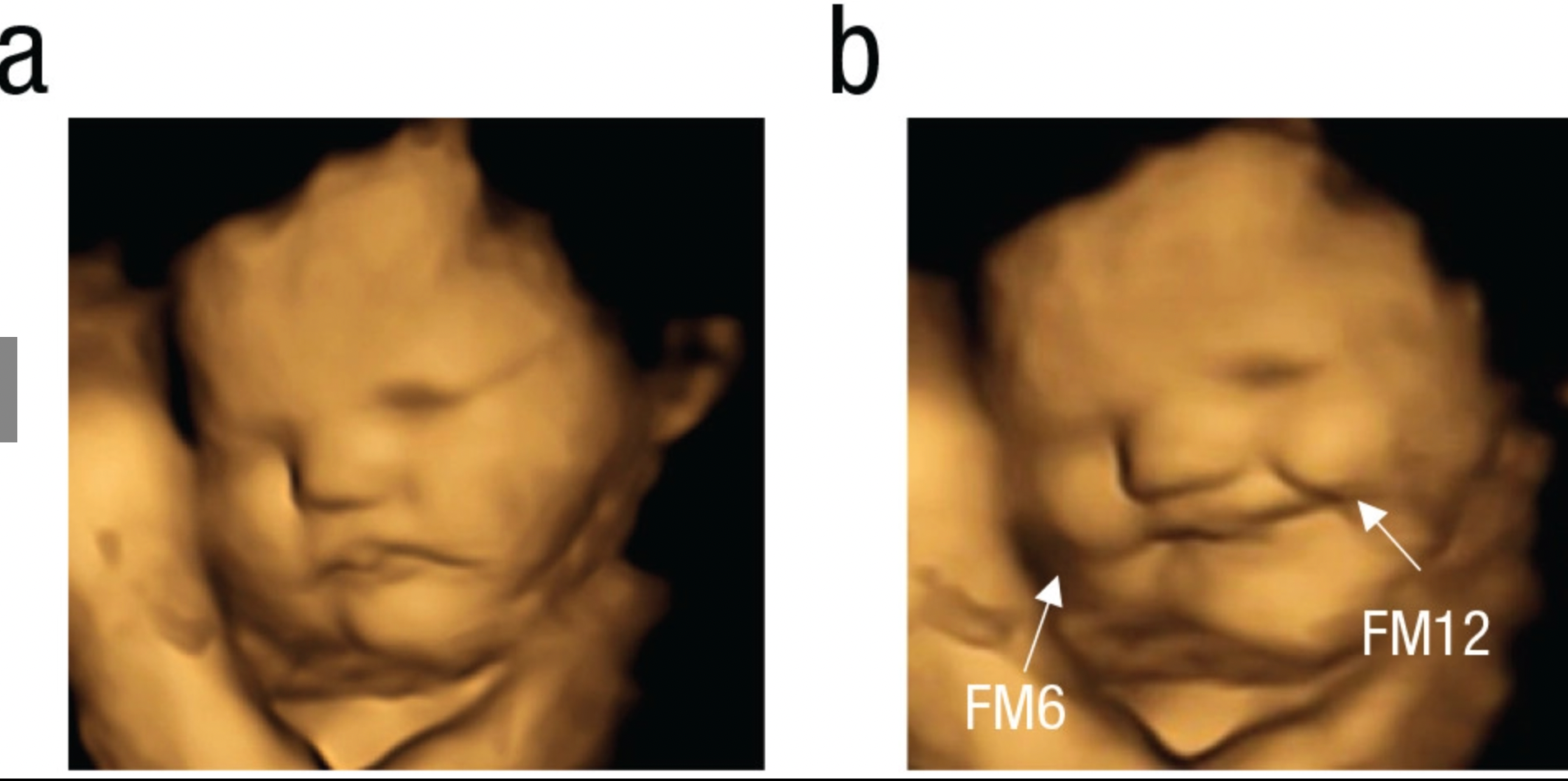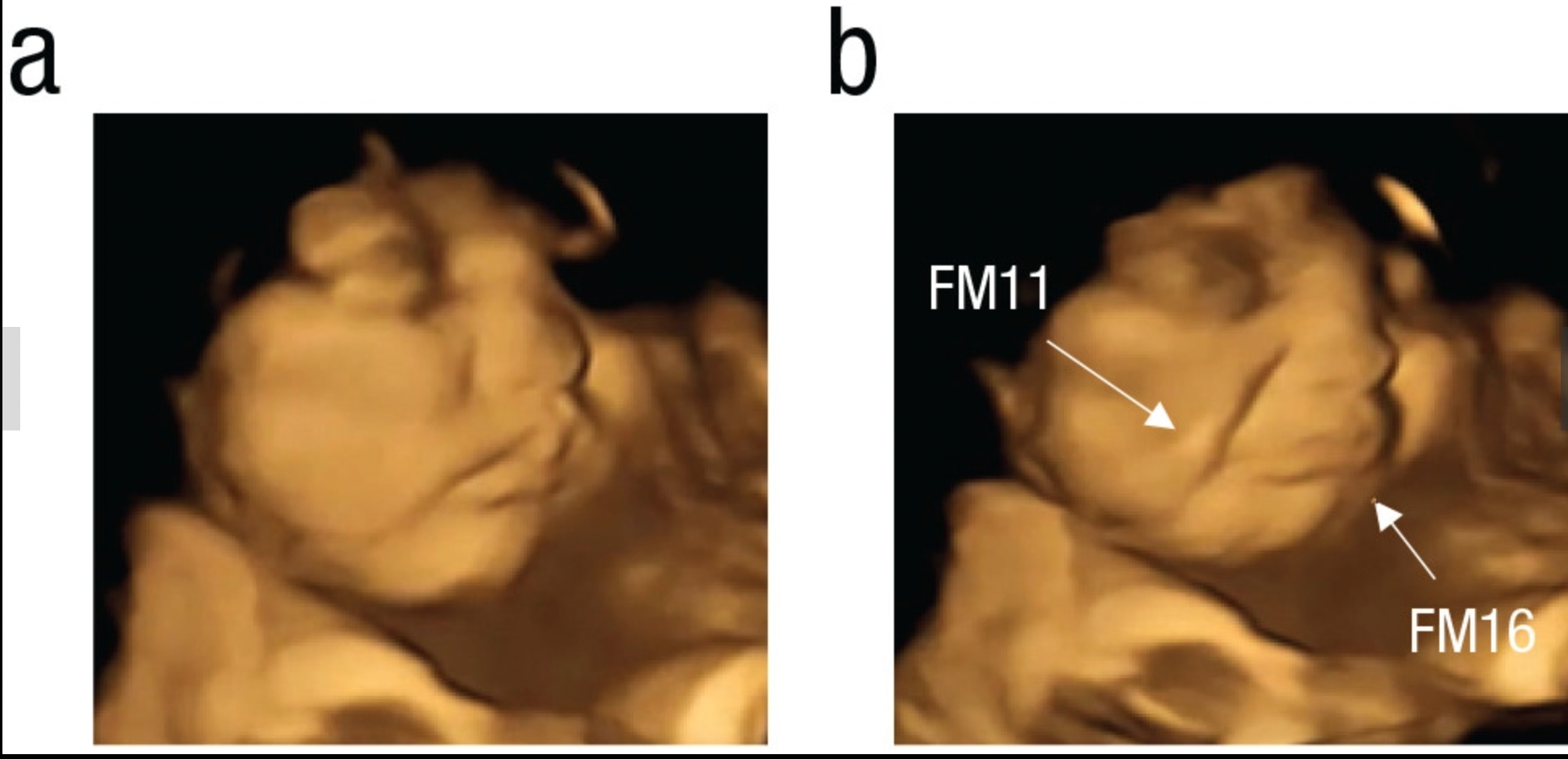Super rare ultrasound images show babies smiling in the womb as their mothers eat carrots
Kale is a different story.

Maybe they'll like kale chips?
Lovers of babies and haters of kale, have we got a fun and fascinating science-based story for you.
A new study posted in Psychological Science shows rare up-close-and-personal photos of babies in the womb making different facial reactions to different food their mothers eat. Previous studies with infants and breastmilk have shown that flavors carry from mother to child through amniotic fluid, but this is the first time unborn babies have been examined.
One hundred pregnant women from the U.K. were given powder with either carrot or kale flavoring or neither flavor. After 20 minutes, 4D ultrasound scans revealed undeniably different—and kind of hilarious—facial reactions. It was very telling which flavor was smile inducing and which one wasn’t.
As the picture below shows, the carrot flavor induced a smiling “laugh face,” as the study called it.
This look of pleasure could be as a result of a preference for sweetness, which newborns are known to gravitate to as a basic biological drive.
My face when I eat a donut.
As the study suggests, it could be that this natural instinct develops long before infancy. And for some of us (me) that sweet tooth never really goes away.
Meanwhile, babes who experienced the kale flavoring made disgusted grimaces, or “cry faces.”
Kale wasn’t just a hard sell to the fetuses—one of the other reasons why researchers used capsules instead of raw kale or kale juice was because the mothers couldn’t stand the taste, and had such a negative disposition toward it that scientists feared it would influence their babies.
"I had a number of people in the lab, and I tried to give them a kale juice to drink, and you should have seen the expressions," Nadja Reissland, co-author of the study and head of the Fetal and Neonatal Research Lab at Durham University, said according to NBC News.
We feel you, bitter baby face.
If a picture’s worth a thousand words, I’d say this one just says “yuck” over and over and over.
To be fair, those scowls "might be just the muscle movements which are reacting to a bitter flavor," Reissland noted, rather than any real showing of emotion, adding that expressions became more complex over time during gestation.
The major takeaway from this study (other than a wholesome giggle) is seeing how early humans can be influenced by flavors. If they are exposed to certain foods early on during pregnancy, they might embrace them and instill better eating habits once they're born.
"If we can actually get [children] to like green vegetables and to perhaps not like sweets that much, it might help with regard to their weight gain and their weight balance," Reissland said.Nearly everyone has at least one vegetable that they absolutely love. However those tend to lean toward the sweeter side like carrots and corn. Rarely do kids—or adults for that matter—go ga-ga for bitter-tasting ones. Brussels sprouts alone are the target of much hate.

Sprouts get a bad rap.
GiphyIf we could learn to welcome a wider variety of veggies into our palette from an early age (in this case, a very early age), maybe as adults we wouldn’t grimace over greens.
- Mom pulls over and delivers her own baby as her kids wait in the car ... ›
- Hiccups are good for babies' development, study finds - Upworthy ›
- Viral video shows what happens when a baby breastfeeds - Upworthy ›
- Woman posts dramatic before-and-after pics of one pound loss - Upworthy ›
- Visually impaired mom can now 'see' her baby's ultrasound - Upworthy ›

